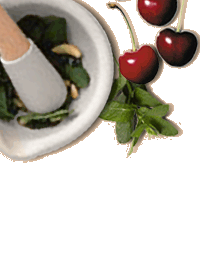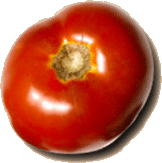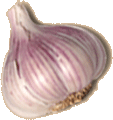Cholesterol Warning – Medical Misinformation in Major Media – Part Two
February 28, 2015
Cholesterol Warning – Medical Misinformation in Major Media – Part Two
Why reducing your cholesterol too low can be bad for you
Abnormally low cholesterol, called Hypocholesterolemia, is defined as total cholesterol levels below 160 mg/dl or 4.1 mmol/l by the American Heart Association. The important part of this measure is how it lowers your HDL (good) cholesterol specifically.
It can be caused by statin drugs, hyperthyroidism (overactive thyroid gland), adrenal insufficiency, liver disease, fat malabsorption (inadequate absorption of nutrients from the intestines) such as in celiac disease, malnutrition, abetalipoproteinemia (a rare genetic disease that causes cholesterol readings below 50 mg/dl), hypobetalipoproteinemia (a genetic disease that causes cholesterol readings below 50 mg/dl), manganese deficiency, Smith-Lemli-Opitz syndrome, and Marfan syndrome, leukemia and other hematological diseases.
Reducing your HDL cholesterol too low could lead to impaired memory and dementia [12]; increase your risk of depression [13]; could lead to suicide [14]; may lead to violent behavior and aggression [15], and can increase your risk of cancer and Parkinson’s disease. [16]
Cholesterol is necessary to our body’s health
First of all, you should know that cholesterol is a natural byproduct of the liver and a necessary component for good health. Cholesterol is essential for cellular repair and development. It plays a critical role in the improvement of memory and learning; it is the precursor to vitamin D production; it synthesizes sex hormones and natural steroids which naturally control blood sugar, and blood pressure and balance; it helps convert fats in the liver, and is a potent antioxidant acting to scavenge free radicals and reduce metabolic syndrome.
According to the American Heart Association, cholesterol does not dissolve in our blood but is transported through our body by lipoproteins. Many studies indicate that HDL, the high density (good) cholesterol, helps guard our cardiovascular system. LDL, low density (bad) cholesterol, can build deposits on arteries. Not enough HDL cholesterol stops production of pain-controlling steroid hormones, limits our body’s ability to properly digest foods, and damages our body’s ability to create energy reserves. Too little HDL can also lead to inflammation and pain, which can be the cause of heart disease, according to the latest studies.
My recommendations to lower your cholesterol naturally
Next to moderate exercise (walking, cycling, swimming and dancing), there are a few known food ways to reduce your cholesterol naturally without having to suffer the side effects of statin drugs.
Dietary Fiber
Fiber – particularly soluble fiber – can lower cholesterol levels and may help you to lose weight as well. Since it takes more time to chew high fiber foods, it allows your body to feel full faster and for a longer period. The result is that you’re less likely to overeat. Examples of high fiber foods are bran, oatmeal, beans, the vast majority of green vegetables, and fruits like raspberries, raisins, avocados (yes, it’s a fruit), as well as the fruits for old folks: prunes.
Coconut Oil
Coconut oil lowers LDL cholesterol. The cholesterol-lowering properties of coconut oil are a direct result of its ability to stimulate thyroid function. In the presence of adequate thyroid hormone, cholesterol (specifically LDL-cholesterol) is converted by enzymatic processes to the vitally necessary anti-aging steroids pregnenolone, progesterone and DHEA. These substances are required to help prevent heart disease, senility, obesity, cancer and other diseases associated with aging and chronic degenerative diseases.
Vegetables
Veggies contain both soluble and insoluble fiber, both known to help lower cholesterol. A few super-veggies that can help you in your battle: artichokes, Jerusalem artichokes, garlic, onions, leeks, mushrooms, hot peppers, green peas, arugula, asparagus, beets, bok choy, broccoli, broccoli rabe, Brussels sprouts (my personal favorite), all cabbages, carrots, cauliflower, celery, collard greens, dandelion, eggplant, endive, fennel, green beans and haricots verts (a French, smaller, stringless, more tender version of green beans), kale, onions, sweet Peppers, pumpkin, rutabagas (another forgotten root worth rediscovering), spinach, squash, sweet potatoes, Swiss chard, tomatoes, turnips, watercress, and many, many more.
Fruits
Fruits are your sweeter helpers in your battle against cholesterol: apples, avocados, blueberries, figs, oranges and other citrus fruits, grapes, olives, prunes, and many, many other fruits.
Nuts and seeds
There is a vast assortment of nuts and seeds available to help you fight off cholesterol. Make sure to eat them raw and unprocessed to protect their healthy oils cholesterol-lowering qualities.
Green Tea
Green tea contains various compounds that lower LDL cholesterol levels. A study performed in Brazil where people consumed green tea extract in capsules resulted in a 4.5 percent lowering of LDL cholesterol levels.
Niacin
Niacin, or vitamin B-3 helps lower LDL cholesterol levels as much as 10% and raise HDL cholesterol levels by 15% to 30%. Because of its many side effects, niacin should only be used under the supervision of a health practitioner.
Note: See complete information on this subject in my book, How to Lower Your Cholesterol with French Gourmet Food.
Participate in our effort to clarify this information
This case shows how medical information can now be manipulated on a large scale.
When it comes to encourage the irresponsible consumption of a drug, with the significant potential added value to the pharmaceutical industry, many media throw caution to the wind. Statins currently generate $ 25 billion per year in revenue. [9]
So, don’t always believe the headlines that claim or suggest that seniors would benefit from all anti-cholesterol drugs.
These researchers wanted to convey the exact opposite message. When you read their study in its entirety, it is clear that their opinion is that the new treatment recommendations for cholesterol medications from the American Heart Association are exaggerated. If we followed them blindly, it would lead to the result of putting virtually our entire elderly population on statins.
Thank you for circulating this message as widely as possible.
Forward it to all the people around you that may be concerned by the pseudo-results of this study as reported by the media. Thank you.
A Votre Sante – To Your Health
Chef Alain Braux
[12] ‘Good’ cholesterol dementia risk and Low HDL cholesterol is a risk factor for deficit and decline in memory in midlife: the Whitehall II study.
[13] Psychosomatic Medicine 2000; 62.
[14] Low Cholesterol and Suicide and Low serum cholesterol and suicide.
[15] Annals of Internal Medicine (1998;128(6):478-487) and The Journal of the American Medical Association (1997;278:313-321)
[16] Journal of the American College of Cardiology July 31, 2007; 50:409-418 and Reuters July 24, 2007








leave a comment